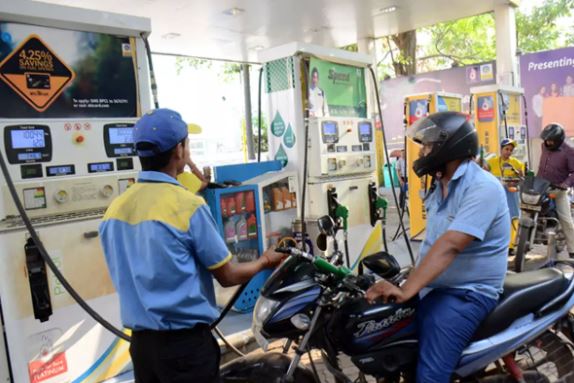Due to the high prices of petrol and diesel in the country, once again there is hope that this can be discussed in the GST Council meeting to be held in Lucknow on Friday. However, if experts are to be believed, they do not think that both the Center and the states can take a tough decision in this regard by being serious.
According to experts, a major part of the income of both the central and state governments comes from here. At the same time, for the states, it is the main source of income after the GST. In such a situation, to bring it under the purview of GST, both will have to give up the temptation of their own earnings. Only then this tough decision can be taken. The GST regime was implemented in the country from July 1, 2017.
Central taxes such as excise duty and state duties such as VAT were subsumed in GST but petrol, diesel, ATF, natural gas and crude oil were kept out of the purview of GST. GST is a consumption based tax. In such a situation, those states will benefit more by bringing petroleum products under it, where these products will be sold more. This is the reason why states with low consumption of these substances keep advocating for bringing it under GST and those with high consumption keep it out of GST.
What do experts say
Former Finance Secretary Ashok Kumar Jha has told Hindustan that the central government levies excise tax in this which is not shared with the states. This amount completely goes to the central government only, it is not shared with the states. At the same time, due to coming under the purview of GST, this duty will not be levied on petrol, diesel. According to him, only state taxes can be imposed on liquor, petroleum products and construction. The introduction of petroleum products under GST will reduce their dependence on their own income and they will have to spread their hands for the expenses before the Centre.
Bumper earning from petrol and diesel
Talking about the figures, in response to the question asked in the last session of Parliament, the Finance Ministry has said that the Center has increased the central tax thrice during January 2019 to January 2021. Till July this year, the excise duty on unbranded petrol is Rs 32.90 and on unbranded diesel Rs 31.80 per liter. In the month of July 2015, this duty used to be Rs 17.46 per liter on petrol and Rs 10.26 per liter on diesel. At the same time, VAT is being charged on it in Delhi at Rs 23.50 and on diesel Rs 13.14 per liter. VAT rates differ from state to state. The Central Government has also informed that during April to June 2021, excise duty of Rs 94,181 crore has been collected from petrol and diesel. At the same time, the share of petroleum products in the gross revenue collected during 2017-18 to 2020-21 has been 12 percent.
Review of rates and tax exemption on 11 Kovid drugs will be considered
The GST Council meeting, chaired by Finance Minister Nirmala Sitharaman, may review the tax rate on more than four dozen items and extend the tax exemption on 11 Covid drugs till December 31 in its meeting on Friday. The proposal to treat food delivery apps like Zomato and Swiggy as restaurants and levy 5% GST on the deliveries made by them will also be considered during the GST Council meeting. The meeting will be attended by the Finance Ministers of the States and Union Territories and senior officials of the Central Government and the States, besides Minister of State for Finance Shri Pankaj Choudhary.
Kerala will protest
Kerala on Thursday said it would strongly oppose any move to bring petrol and diesel under the ambit of the Goods and Services Tax (GST) as it would adversely affect the state’s revenue collection. Instead, the state should reduce central taxes on fuel to provide relief to the common people, the state said.


